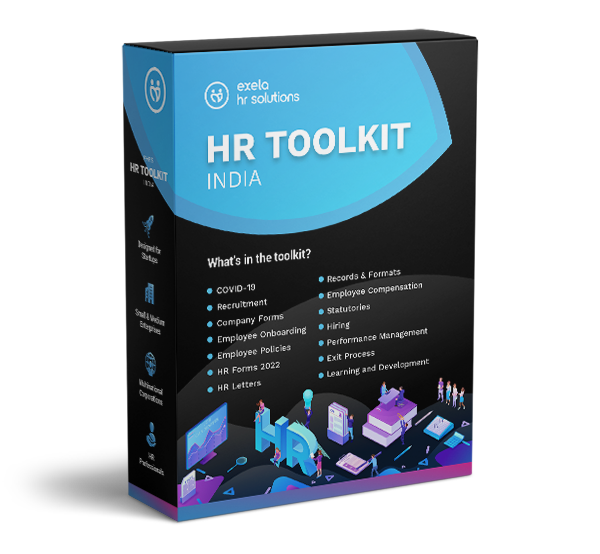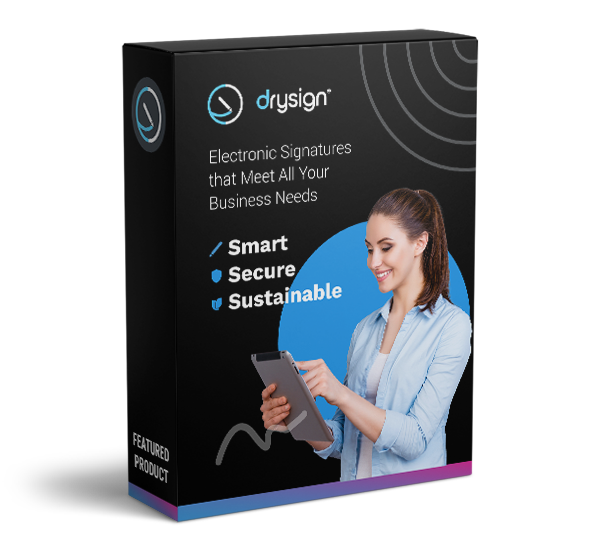
Organizations today are constantly seeking new ways to stay ahead in the talent acquisition game. Traditional recruitment processes can no longer cut it in the face of an ever-expanding job market and the evolving needs and expectations of job seekers.
As technology continues to shape our world, organizations must adapt and leverage cutting-edge tools and approaches to find the best-fit candidates efficiently. This is where Generative AI steps in as a game-changer.
Generative AI is poised to transform how organizations identify, attract, and retain top talent. It represents a fundamental shift in the recruitment paradigm, harnessing the power of artificial intelligence to automate and optimize various aspects of the hiring process. This transformation isn't just about embracing the latest trends; it's about ensuring your organization remains competitive, adaptable, and responsive to the ever-changing job market.
In this blog, we will dive into the concept of Generative AI and explore how it can revolutionize the way organizations approach recruitment. Read on to learn more about integrating Generative AI into recruitment processes.
What is Generative AI?
Generative AI, at its core, is a subset of artificial intelligence that focuses on the ability to generate content that is often indistinguishable from what a human might create. Unlike traditional AI, which operates based on predefined rules and patterns, Generative AI can autonomously create content, whether it's text, images, or even music. It uses deep learning models to understand and replicate human-like patterns and behaviors.
In the context of recruitment, Generative AI can generate human-like job descriptions, craft personalized candidate emails, and even conduct conversations with job applicants. This capability is a game-changer because it can automate previously time-consuming tasks, allowing HR professionals to focus on more strategic aspects of recruitment.
Transforming Recruitment with Generative AI
The integration of Generative AI in recruitment is a transformative shift that promises to revolutionize the way organizations find and engage with top talent. Here are various ways in which Generative AI can be harnessed to streamline and enhance recruitment processes, ultimately leading to more efficient and effective hiring outcomes.
-
Streamlining Job Postings and Descriptions:
One of the initial touch points in the recruitment process is the job posting. The language, tone, and content of a job description can significantly impact the quality and quantity of applicants. Generative AI can assist in this critical area by:
a. Creating Engaging Descriptions: AI can generate job descriptions that are informative and engaging, captivating the attention of potential candidates. It can use data-driven insights to understand what candidates seek in a job.
b. Removing Bias: AI can be programmed to detect and remove biased language, making job postings more inclusive and appealing to a diverse range of candidates.
c. Optimizing Keywords: By analyzing data on the most effective keywords and phrases for job postings, AI can ensure that your job ads are discoverable by the right candidates on job boards and search engines.
-
Enhancing Candidate Sourcing and Screening:
Generative AI can significantly expedite the process of sourcing and screening candidates, ensuring that you identify the most qualified individuals without sifting through stacks of resumes:
a. Automated Resume Screening: AI can swiftly scan through resumes and profiles, comparing qualifications and experience with job requirements. This saves recruiters hours of manual resume screening and shortlisting.
b. Matching Skills and Keywords: AI can precisely match candidate skills, qualifications, and keywords with job requirements, identifying the most suitable candidates for a specific role.
c. Predictive Analytics: AI can use historical data to predict which candidates are more likely to succeed in a role, helping recruiters prioritize their efforts on the most promising prospects.
-
Automating Repetitive Tasks
Recruitment often involves a slew of repetitive administrative tasks that are time-consuming and prone to errors. Generative AI can automate these tasks, freeing up HR professionals for more strategic work:
a. Scheduling Interviews: AI-driven chatbots or assistants can schedule interviews, send reminders, and even conduct initial screenings, reducing the need for manual coordination.
b. Answering FAQs: Chatbots can handle frequently asked questions from candidates, providing timely responses and enhancing the overall candidate experience.
c. Follow-Up Emails: After interviews, AI can send follow-up emails to candidates, keeping them engaged and informed about the recruitment process.
-
Personalizing Candidate Experiences
In today's competitive job market, personalization is key to attracting and retaining top talent. Generative AI can help tailor the candidate experience:
a. Personalized Messages: AI can craft personalized emails and messages, addressing candidates by their names and referencing their skills or interests, creating a positive and engaging experience.
b. Content Recommendations: AI can suggest relevant content, such as blog posts, videos, or resources, to candidates based on their interests and profiles, further enhancing engagement.
c. Automated Feedback: AI can gather feedback from candidates post-interview, providing valuable insights for steady improvement in the recruitment process.
Also Read: Revolutionize Recruitment: 4 Game-Changing Technologies
Best Practices for Integrating Generative AI
Integrating Generative AI in recruitment processes can be a game-changer, but it's essential to approach this transformation with a thoughtful and strategic mindset. Here are some best practices to guide your organization's journey toward effectively integrating Generative AI in recruitment efforts:
- Choose the Right AI Tools:
- Assess Your Needs: Before diving into AI integration, thoroughly assess your organization's recruitment needs. Understand the pain points, challenges, and areas where AI can impact most. Your choice of AI tools should align with these needs.
- Vendor Selection: When selecting AI tools, consider the reputation and track record of the vendors. Look for providers with experience in the recruitment industry and those who offer customizable solutions that fit your specific requirements.
- Training and Implementation:
- Comprehensive Training: Ensure that your HR team and any other relevant personnel receive comprehensive training on using the AI tools. Understanding the technology and its capabilities is essential for successful implementation.
- Data Integration: Effective AI implementation often relies on data. Ensure that your existing data systems can integrate with the AI tools seamlessly. High-quality and clean data are crucial for AI to work effectively.
- Pilot Programs: Start with pilot programs to test the AI tools in a controlled environment. This allows your team to identify any issues or areas that need adjustment before rolling out the technology more broadly.
- Monitoring and Fine-Tuning:
- Continuous Evaluation: Regularly monitor the performance of the AI tools in your recruitment processes. Measure key performance indicators (KPIs) such as time-to-fill, candidate quality, and cost per hire to assess their impact.
- Feedback Loops: Create feedback loops where HR professionals can provide insights and corrections to the AI system. This helps the AI learn and improve over time, making it more effective in the long run.
- Ethical Considerations: Continuously evaluate the ethical implications of AI use in your recruitment processes. Ensure that the technology doesn't inadvertently introduce bias or make unfair decisions.
- Data Privacy and Security:
- Compliance: Ensure your AI tools comply with all relevant data privacy regulations and standards, such as GDPR or CCPA. Respect candidate data privacy and gain explicit consent where necessary.
- Data Security: Implement robust data security measures to protect candidate and organizational data. Data breaches or mishandling of sensitive information can have serious consequences.
- Candidate Communication:
- Transparent Communication: When AI is involved in the recruitment process, being transparent with candidates is crucial. Let them know when they are interacting with AI-driven systems and provide information on how their data is being used.
- Human Interaction: While AI can automate many tasks, it maintains opportunities for candidates to interact with real people, especially in more sensitive or complex parts of the recruitment process. Balancing AI and human interaction is vital.
- Measure ROI:
- Quantify Impact: Regularly measure your AI Integration’s return on investment (ROI). Evaluate how much time, effort, and resources the technology saves compared to its implementation and maintenance costs.
- Adjust as Needed: Based on the ROI metrics, be prepared to make adjustments. If certain AI tools or processes are not delivering the expected benefits, consider fine-tuning or exploring alternative solutions.
- Stay Informed and Evolve:
- Stay Updated: The field of AI is rapidly evolving. Keep up with the latest developments and trends in AI technology, as this can help your organization remain competitive in talent acquisition.
- Embrace Evolution: Be open to the evolution of your AI integration. As AI technology improves, be prepared to adapt and upgrade your systems to leverage the latest advancements.
Conclusion
Generative AI has the potential to revolutionize recruitment by enhancing efficiency and precision. To succeed in the evolving recruitment landscape, organizations should embrace innovation while carefully navigating ethical considerations and maintaining the human touch.
Exela HR Solutions offers AI-powered services that enable organizations to craft engaging job descriptions, streamline resume screening, automate administrative tasks, personalize candidate engagement, and make data-driven decisions. By partnering with Exela HR Solutions, you can leverage the transformative power of Generative AI to attract the best talent and gain a competitive edge.
Get Exela HR Solutions for all your recruitment needs!
DISCLAIMER: The information on this site is for general information purposes only and is not intended to serve as legal advice. Laws governing the subject matter may change quickly, and Exela cannot guarantee that all the information on this site is current or correct. Should you have specific legal questions about any of the information on this site, you should consult with a licensed attorney in your area.





